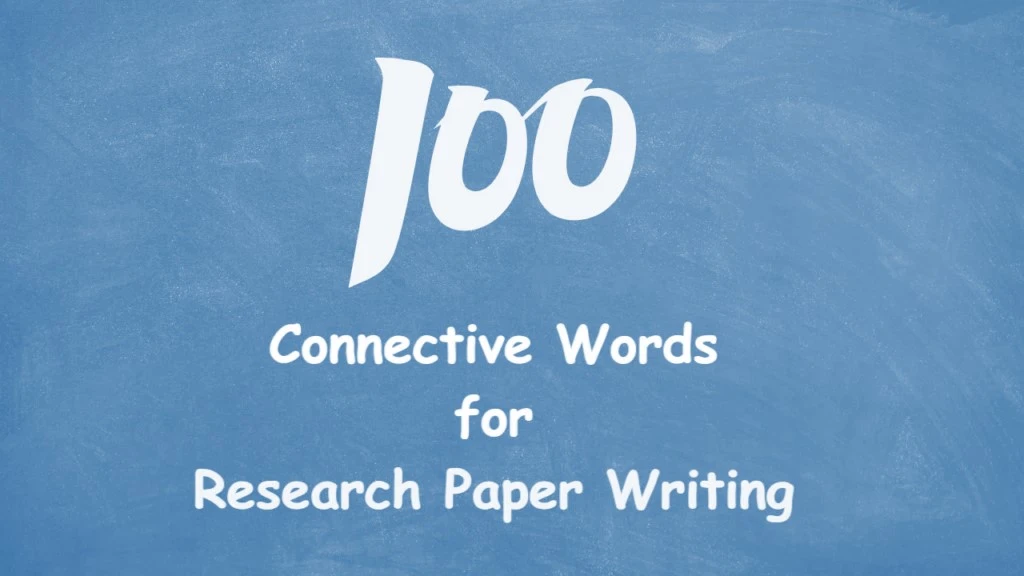Creating a smooth and comprehensible flow for readers is one of the biggest challenges when writing a research paper. One key factor contributing to this challenge is the absence of appropriate sentence connectors or the misplacement of connecting words. This article will explore 100 connective keywords essential for enhancing the cohesion and clarity of a research paper.
Writing a research paper is similar to constructing a complex puzzle. Each piece, or in this case, each word, plays a crucial role in creating a coherent and compelling narrative.
One of the key elements in achieving this coherence is the use of connective words. These words act as bridges, guiding your readers from one idea to the next seamlessly.
In this blog post, we’ll explore 100 connective words that are essential for crafting a well-structured and engaging research paper.
The Importance of Connective Words
Connective words, also known as transition or linking words, are fundamental in academic writing. They serve several critical functions:
- Coherence: Connective words help maintain a logical flow of ideas throughout your paper, making it easier for readers to follow your arguments.
- Clarity: They clarify the relationships between different parts of your paper, such as cause and effect, comparison, contrast, and sequence.
- Engagement: Well-chosen connective words can enhance the readability of your paper, keeping your readers engaged and focused.
Essential Connective Words for Research Papers
1. Showing Cause
- Due to
- Because of
- Owing to
- As a result of
- Since
- Consequently
2. Demonstrating Effect
- Therefore
- Thus
- Hence
- Consequently
- Accordingly
- As a result
3. Adding Information
- Furthermore
- Moreover
- In addition
- Additionally
- Also
- Besides
4. Expressing Condition
- If
- Unless
- Provided that
- Whether
- In case
- So that
5. Marking Time
- First
- Secondly
- Next
- Then
- Meanwhile
- Afterwards
6. Comparing Ideas
- Similarly
- Likewise
- In the same way
- Just as
- Compared to
- Like
7. Contrasting Ideas
- However
- On the other hand
- Nevertheless
- Conversely
- Despite
- Although
8. Illustrating Examples
- For example
- For instance
- Such as
- To illustrate
- In particular
- Specifically
9. Emphasizing Points
- Indeed
- Certainly
- Undoubtedly
- Clearly
- Importantly
- Notably
10. Concluding Thoughts
- In conclusion
- To sum up
- Finally
- In summary
- To conclude
- Ultimately
Using Connective Words Effectively
While having a plethora of connective words at your disposal is advantageous, using them effectively is equally important. Here are some tips for using connective words in your research paper:
- Understand Their Functions: Be clear about the purpose of each connective word and use them appropriately based on the relationship you want to convey.
- Maintain Consistency: Use connective words consistently throughout your paper to ensure coherence and avoid confusion.
- Vary Your Vocabulary: While consistency is crucial, don’t hesitate to vary your choice of connective words to avoid repetition and enhance readability.
- Proofread Carefully: After writing, review your paper to ensure that the connective words you’ve used enhance the overall structure and clarity of your arguments.
Conclusion
Connective words are the glue that holds your research paper together. By incorporating these 100 connective words into your writing, you can create a well-structured, cohesive, and compelling paper that effectively communicates your ideas to your readers.
Mastering the art of using connective words will not only improve the quality of your research paper but also enhance your overall academic writing skills.



